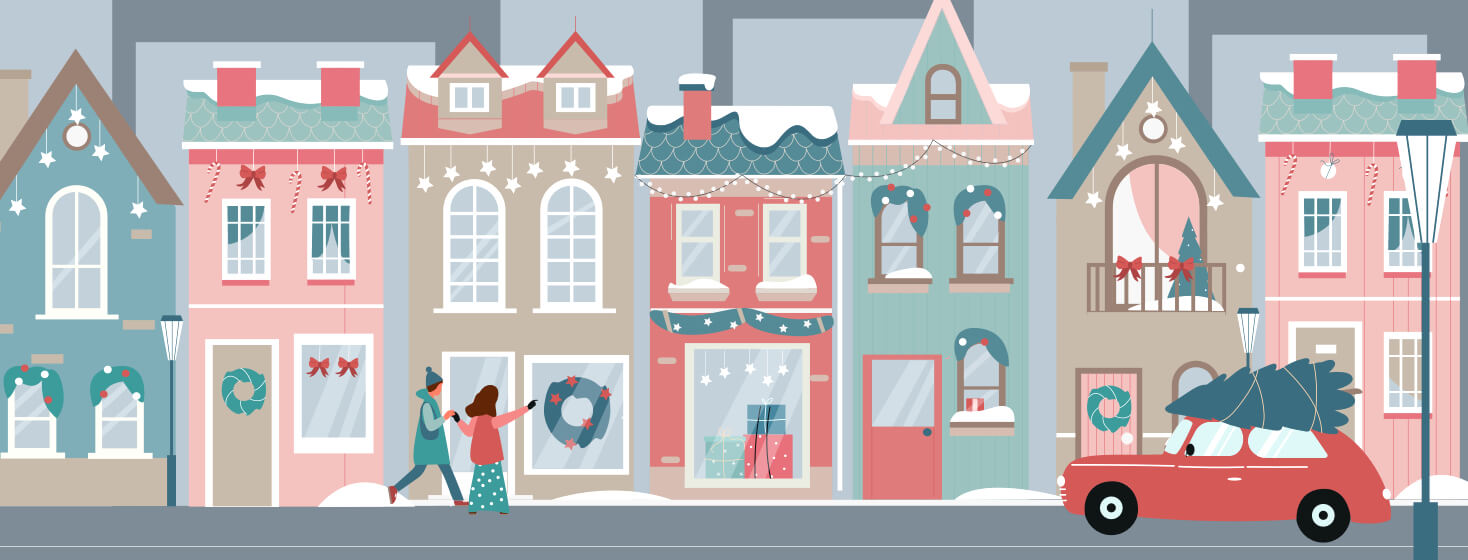How MS Made Me Slow Down for the Holidays...Literally
It’s been more than seven years since my diagnosis, but I recall certain details from my first Christmas following that date like they’d happened only yesterday—an unexpected gift from an unlikely source: MS.
Reimagining Christmas
Those were overwhelming days. I still had two children home in high school, with both involved in sports and the arts—and they didn’t drive.
That’s a stressful load for a working mother at any time of year. But that Christmas felt especially taxing—it included a week of my daughter’s local Nutcracker performances, and I’d been a dedicated studio volunteer.
A lower-stress holiday
Ironically enough, we’d already reimagined a lower-stress holiday a couple of years before my diagnosis. We’d agreed to exchange gift cards instead of gifts, basing our Christmas on a togetherness theme. We went into the city to shop, enjoy dinner, see a movie, and stay the night in a hotel. It worked.
Holiday tasks I cut out after my MS diagnosis
Post-diagnosis, my Christmas efforts grew even leaner. I opted out of cookie baking and let go of holiday Christmas card writing, which included the annual family letter.
These were tasks my MS-fogged brain just wasn’t up for. I still had Tecfidera side effects six months into treatment (flushing and stomach problems). While my disease course may have stalled, my symptoms persisted.
Meanwhile, I’d started a new career in a sleep laboratory. I worked 12-hour shifts from 7 pm to 7 am three nights a week, then spent the next four days recovering my circadian rhythms. The 2013 holiday season found me tired in a way I’d never been tired before.
Best laid plans
That Christmas, we made our trip into the city a few days before the actual holiday. We checked into a stately hotel in Seattle within walking distance of Westlake Center, a four-story glass-enclosed shopping mall. This is where lines for the Nordstrom Santa ran long, food trucks stood nearby festooned with twinkling lights, and, just up the hill, the Sheraton hosted its annual gingerbread village competition.
Once we covered this territory (shopping, gawking, and snacking), we would typically stroll a few blocks further west to Pike Place Market. After that, we’d eat dinner at a beloved pan-Asian small plates restaurant and grab a movie (in 2013, it was “The Secret Life of Walter Mitty”).
With cool, clear weather, we’d planned on a lot of walking. Emphasis on the word planned.
Holiday sensory overload
We didn’t even make it out of Westlake Center before I took my first nap. The girls made quick work of spending their gift cards. Meanwhile, I barely passed through the door before I was assaulted by sensory overload. The lights, the sounds, the crowds...my ears began to ring like church bells, and not in a sacred, Christmas-y way.
My husband and I claimed overstuffed chairs inside, where we sat, guarding our girls’ shopping bags. After slurring a few words and blinking against the brightness of the lights, I collapsed into sleep.
Trying to go out for fresh air
Eventually, the girls returned, asking if we could go to the market. My tinnitus had receded, and I looked forward to some natural light and fresh air, so I said yes.
As soon as we hit the sidewalk, my legs grew as heavy, like I was walking through wet concrete.
Walking fast was not an option
Mind you, I’ve always been a fast walker. My parents would chide me as a kid for hiking too far ahead (we’re in the Pacific Northwest, after all, alive with bears and cougars!). Having waited tables for many years as a young woman, I’d maintained a quick walking pace.
But not on that day. My family found me walking practically in slow motion—me, the one usually urging them to keep up!
“Don’t mind me,” I said. “You go on ahead, I’ll catch up.”
What happens when you slow down
MS slowed my gait as well as my breathing, my speech, and my ability to process sensory information. I watched the girls walk ahead, feeling sad, as if I’d lost them.
Then I noticed the charming shops lit by fairy lights, holiday music piped out onto the sidewalk, the sweet smells coming from the stroopwafel vendor.
It took me a while to walk five blocks; I sat for a spell on a city bench, watching horse-drawn carriages decked in pine boughs jingle by. From a cobblestone street corner, I heard people in Victorian costumes singing "Deck the Halls."
An uplifting sight
And then, in that magical late-afternoon light so unique to the solstice, I glimpsed my daughters from afar. They held hands, pointing, chattering, and giggling at something in a window display.
My legs and brain may have been slow in that moment, but my heart was not.
Later, one of them told me they were sorry I wasn’t feeling good and hoped I’d had a good time.
“You have no idea,” I said, smiling.

Join the conversation